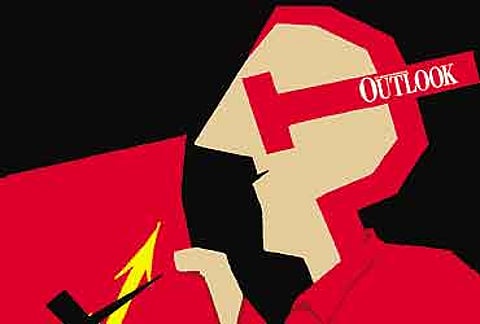A National Low Cal Debate
Why is the Outlook for India so grey when, with the same indicators, Calcutta is so bright and shiny? Can't feelgood take a right turn instead of left?

An NCAER economist is quoted to debunk the rise in foreign exchange reserves. But the same NCAER's review on rising consumption in rural areas is ignored. The NCAER Indian Market Demographic Report of last March says "rural consumers are increasingly buying Group III items" (The Economic Times, March 29, '03). The 1999 figures show rural consumption growth even in white goods like washing machines and refrigerators.
The subsequent figures will be even more revealing of the buying power of rural areas. On November 27, '03, an ET report under the headline 'Not just Gurgaon, it's gaon gaon' said the following: "The rural retail revolution is knocking at the Indian farmer's door and everyone is invited. Cigarettes-to-hotels major itc is setting up 45 shopping malls in the countryside, each the size of Delhi's Khan Market, to retail everything from John Players' clothes and ICICI life insurance to Eicher motorbikes." The report added that "over the next two years, 10,000 villages in MP will have an itc mall". It is inconceivable that a market-savvy private company like itc will sink so much money building malls in rural areas unless it has made doubly sure there is purchasing power in the region to back it.
Now, take the jibe "while cellphones and white goods have become cheaper, rice and dal are more expensive", which also seems to circumvent Calcutta. The Outlook report on the city sings praises about the five-star culture and the jetset that frequents these joints. It goes into raptures over Calcutta's "gourmet menus that cost up to Rs 1,200 for two" and the queues outside the Oh Calcutta and Grain of Salt restaurants. If cellphones are cheaper, it's nothing. You still complain about rice and dal being costlier but strangely a meal for two that costs Rs 1,200 is marvellous progress! and what about power problems? It's wonderful Calcutta doesn't have one as it is a private company that distributes electricity there. But let the NDA government advise the states to privatise power distribution—and the the same Left Front comes down like a tonne of bricks and accuses it of betraying socialism.The LF government in Bengal has also notified the IT industry as out of bounds for labour laws. But let the Centre try to rationalise labour laws, the same Left will be barking "betrayal".
Outlook may want the world to believe the current feelgood mood and the 8 per cent growth rate are all a chimera, but perceptive observers look at it differently. "India Inc is busy scripting a global story," said ET on November 27 last, reporting on how Indian companies are acquiring US- and UK-based companies. When Tata sells its Indian-made cars in the UK or HAL its helicopters in the US, is it just a flash in the pan? Surely, government policy must have had a say in these scenarios? Almost all chambers stress that the feelgood isn't just flash but the outcome of India's fundamentals being sound. But your report sees only the gloom.
Some 100 Fortune 500 companies have made India an r&d destination for their knowledge-based centres. Who gets jobs in them? In BPO alone, a lakh jobs were created in the last three years. Why doesn't this find mention? Our new jobs all come in the knowledge sector and the good thing is you don't have to be a PhD to work at a BPO centre. Many are just graduates. When NASSCOM says there will be one million jobs in this sector by 2006, it isn't a joke.
Yes, certain areas of growth are unsatisfactory. We have Bihar where every social indicator starting from infant mortality rates continues to be so. This depresses overall national achievement. But one has almost given up on Bihar. It's an Alice in Wonderland area. There's no money to pay even salaries to government employees and almost the whole state-owned fleet of transport buses is grounded, as there's no money to buy spares. So it's no surprise that even improving infant mortality rates is an uphill task?
Meanwhile, in Left-ruled West Bengal "the momentum has caught on, all we need is to play our notes right and we can create a beautiful symphony," says the Outlook report. But when it comes to the national scene, "the disaster zone is 80 per cent of the rural population—incomes for them haven't risen since '89." The last statement seems to indicate that poverty is the result of NDA policies. The fact is the Vajpayee government had inherited vast multitudes of the poor, the result of the crony socialism practiced for the first four decades after Independence. Now, for the first time, prosperity is expanding and poverty retreating.
The malls are creating a symphony in Calcutta but the same are a sign of the decadence in India. Thank you, Marx, for teaching us there can be double standards.
(The writer, a Rajya Sabha MP and the BJP think-tank convenor, can be contacted at bpunj@email.com)
Tags